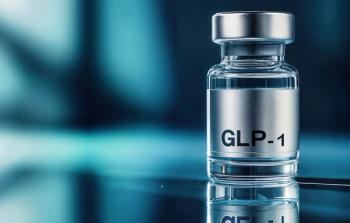
- Pharmaceutical Executive-10-01-2012
- Volume 0
- Issue 0
The Drug Vote 2012
A comparative effectiveness study on the two presidential candidates.
Arriving amid promises of innovation, including process efficiencies and unbridled efficacy, President Obama's four years of real-world data has undermined initial investor confidence, creating uncertainty around lifecycle management decisions going forward. Mitt Romney, an also-ran from 2008 and something of a branded generic, is challenging the President's White House exclusivity with a marketing and promotional budget unmatched in the history of direct-to-consumer advertising, thanks to the Supreme Court's decision on Citizen's United v. Federal Election Commission back in 2010.
While the deepest troughs of our generalized economic depression are behind us—we hope—money and jobs still dominate the national conversation. Tax code allowances to industry are ripe for meddling, and the sacred cow Medicare "entitlement" could get milked into a voucher system, if potential vice president Paul Ryan has his way. On the other hand, Obama's evidence-based Independent Payment Advisory Board (IPAB) could dramatically affect reimbursement rates on new products in the United States, the last bastion of "free-pricing" in the global marketplace for pharmaceuticals and medical devices.
Both presidential bids are premised by a Congressional ecosystem whose main outcome is bitter-tasting syllogism and sophistry, where party platform parity exists only as the sum of their respective disagreement. With staggered Congressional elections and the rise of the filibuster as their joint trial protocol, it's unlikely that improvement against placebo, no matter how much hope is randomized, will occur under either incoming administration. With that said, a few distinctions and similarities are worth noting before heading into the polling dispensary on November 6th.
Corporate taxes
Obama: Supports cutting the corporate tax rate from 35 percent to 28 percent. Has spoken out in favor of extending the R&D tax credit, but has also levied a steep excise tax—2.3 percent of the sale price—on medical devices as part of healthcare reform.
Romney: Would cut the corporate tax rate from 35 percent to 25 percent, continue the offshoring of drug company profits, and "strengthen and make permanent the R&D tax credit." Has characterized Obama's medical device tax as "already driving jobs and investment overseas."
Data exclusivity
Obama: In his annual budget, has proposed shortening exclusivity on biologics from 12 years to seven years, putting him at odds with the late Ted Kennedy. However, a provision of the Affordable Care Act reaffirmed the 12-year period.
Romney: No available statement on exclusivity periods.
Fee-for-service
Obama: Put programs such as Accountable Care Organizations into the Affordable Care Act that shift some providers away from fee-for-service.
Romney: Supports "alternatives" to fee-for-service.
Medicare
Obama: Opposes any efforts to "privatize or voucherize" Medicare.
Romney: Reimagines Medicare as a "premium support system" that repackages existing spending as a fixed-amount benefit based on a recipient's income level. Do we hear voucher?
Embryonic stem cell research
Obama: Repealed former president Bush's executive order that limited NIH funding to stem cell lines already in existence and which banned the creation or destruction of other embryos for research purposes.
Romney: As governor of Massachusetts, banned research using embryonic stem cells derived from human embryos created solely for research. His successor, Deval Patrick, lifted the restrictions in 2007.
Comparative effectiveness research (excluding this article)
Both candidates support CER, but defining what that means is another story. "Value," like candidates, is in the eye of the beholder.
Ben Comer is Pharm Exec's Senior Editor. He can be reached at
Articles in this issue
over 13 years ago
Pharmaceutical Executive Digital Edition - October 2012over 13 years ago
PE, October 2012 Cover Imageover 13 years ago
Lundbeck: Bidding for the Stars and Stripesover 13 years ago
Your Local Competitor: A Threat in Emerging Markets?over 13 years ago
Reforming Pharma Marketingover 13 years ago
Three Ways to the Futureover 13 years ago
Country Report: Turkeyover 13 years ago
Stem Cells: A Promise Deferred?over 13 years ago
Richard Bergström — Europe's Medicine ManNewsletter
Lead with insight with the Pharmaceutical Executive newsletter, featuring strategic analysis, leadership trends, and market intelligence for biopharma decision-makers.




